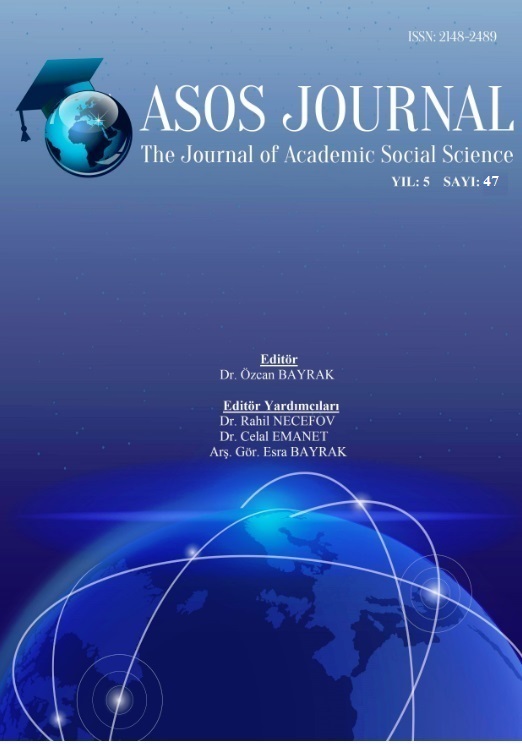Author :
Abstract
Rus toplumsal yapısında köy ve köylü kavramları her zaman önemli bir yer tutar. Özellikle İkinci dünya savaşı sonrası dönemde bu ilgi daha da artar. Nedeni, savaşın ardından yeniden yapılanma ve güçlenme ihtiyacı ile köy ve köylü anlayışının yeniden güçlendirilmeye çalışılmasıdır. Edebiyatın ve sanatın her alanında da bu düşünceye destek verme yönelimi dikkat çeker. Bu düşüncelerle güçlenen Köy Nesri, Sovyet dönemi Rus edebiyatının en önemli edebi süreçlerinden biridir. Bu edebi süreç 1950- 1980-(90) yılları arasında oldukça etkin bir şekilde edebiyatta varlığını hissettirir. Köy nesrinin ilk döneminde (1950-1970) köyün yaşam ve kültür kaynağı olması ve köylünün çalışkanlığı, saflığı, birlik beraberlik duygusu v.b konular ele alınır. İkinci döneminde (1970-1990) ise kentleşme ile birlikte ağırlıklı olarak nostaljik unsurlar, dün-bugün çatışması, eski ve yeni neslin yaşam anlayışındaki farklılıklar v.b. konular ağırlıktadır. Bu çalışmada, köy nesrinin önemli temsilcilerinin kısa ve uzun öykülerinden örnekler vererek Rus toplumunda kentleşme ile birlikte ortaya çıkan dün-bugün çatışması köylü figürler üzerinden değerlendirilecektir. V.Astafyev’in “Lyudoçka”, V.Rasputin’in “Matyora’ya Veda”, “Son Dönem”, S.P.Zalıgin’in “Anya Nine 100 Yaşında” öyküleri ele alınacaktır. Amacımız köy nesri yazarlarının bu konudaki ortak bakış açısını ortaya koymaktır. Ele alınan bu çalışma sosyolojik yöntem ile yapılacaktır.
Keywords
Abstract
The terms village and villager have always had an important place in the Russian social society. This interest showed a great increase especially during the period after World War 2. The reason for this is the need to reconstruct and strengthen after the war and to attempt to re-strengthen the understanding of the concepts of village and villager. The tendency to support this belief in all areas of literature and art attracts attention. Village Prose, which strengthened with these beliefs, is one of the most important literary periods in Soviet Russian literature. This literary period makes others well aware of its presence in literature between the years 1950-1980-(90). Topics such as the village being the source of life and culture, hardworking villagers, the purity of villagers and their unity took place in the first periods of village prose (1970-1990). However, in the second period (1970-1990), topics such as urbanization and nostalgic matters, past-present conflicts, and the differences in understandings between the young and older generations became more dominant. This paper will assess the past-present conflict that arose in the Russian society along with urbanization through villagers by giving examples from the short and long narratives of the most important representatives of village prose. V. Astafyev’s “Lyudochka”, V. Rasputin's “Farewell to Matyora”, S. P. Zaligin “Anya 100 Years Old Grandma” stories will be discussed. Our goal is to reveal the common perspective of the village prose of the writers on this subject. Sociological method this study will be made.
